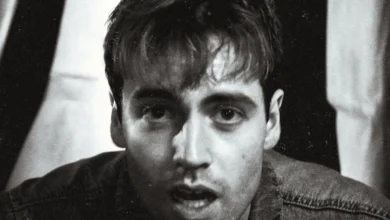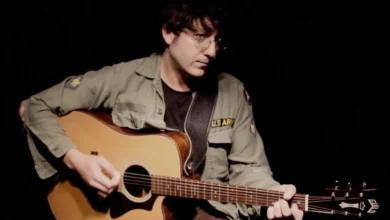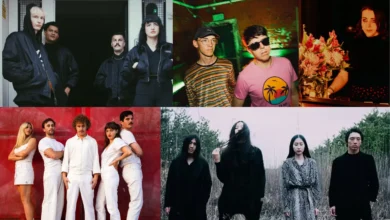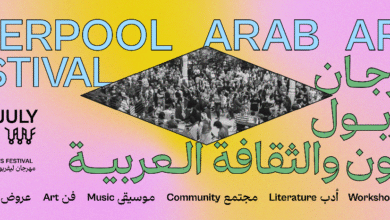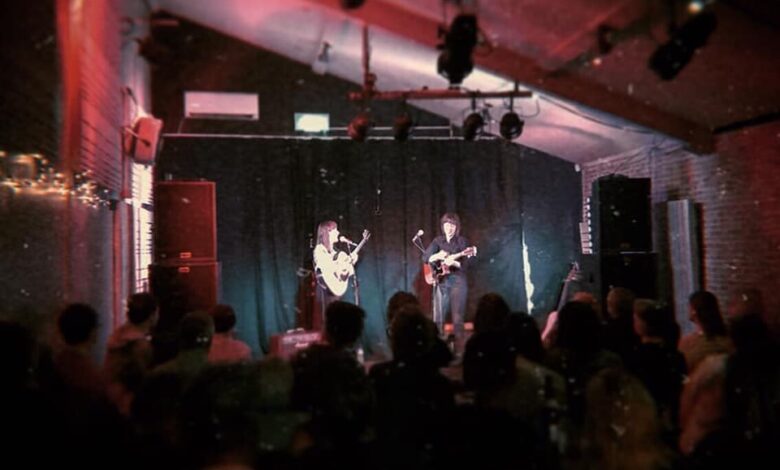
Music Sounds Better with Venues: What’s next for Liverpool’s live music industry?
Liverpool’s live music industry faces a huge struggle for survival following the COVID-19 pandemic but it was struggling for some time before the virus. Simon Christopher at Doing Life Records takes an in-depth look at the problems we face and how we could overcome them.
Well, it’s Groundhog Day again, and not the surreal comedy starring Bill Murray type either. Another venue in Merseyside has seemingly shut its doors, in what feels like the 1000th since I was in and around our local music scene 14 years ago.
Sound Food and Drink was a go-to venue for promoters across the city for local shows all the way up to touring tickets, and almost every local act in the city has some fond memory of playing in its delightfully DIY basement setup. It was also host to the first and also most recent Doing Life shows, and their hard work and great staff made them the best we have booked to date.
Just looking through their social media over the last 12 months, there have been some incredible shows with some amazing talent. It was, in short, a key venue in the development of talent in Merseyside.
It’s had a rocky history of scrappy survival, but last year the warning was made clear by the current owners that its future was at risk. Now, in the midst of the worst health crisis in 100 years, this warning has become truth as its closure became apparent on social media.
This article could be a eulogy to Sound, and frankly, it deserves a great one, but to be honest: I’m fed up. Again.
In 2018, following the closure of The Magnet, I wrote an article via The Bickering Press (now defunct) outlining my frustrations at another music venue closing (definitely not the first, clearly not the last), lamenting the lack of real tough discussions we were having as a local industry, then outlining a number of primarily governmental and council-level schemes that could be put in place to support promoters with razor-thin margins and protect venues from both obscene rents and private entities that are some of the main causes of venue failure. I even discussed the upscaling of smaller mentoring programmes already live in the city, education initiatives, gig volunteers and much, much more.
It got some traction, but never with anyone with clout in the city. Now, as Sound closes, there seems to be an almost exhausted resignation to the shutting of Merseyside venues, and no-one seems to have learnt any lessons from the last however many times it has happened.
What’s worrying now, is that the COVID-19 pandemic has shuttered live music until at least 2021 at the earliest. To be honest, I don’t see consumer confidence returning until the middle of 2021, and only if a lot of conditions are met. The live music industry across the UK is on the precipice, if not already off the cliff.
As a UK-wide issue, recent reports that 400,000 jobs in the creative industries will be lost this year alone, and a total revenue loss of £74 billion across the sector.
On a local level, the City Council is broke, thanks to the Tories. But, at least there’s the Liverpool City Region, who actually hold the money and the power now. Keep that in mind.
So, rather than eulogise and wring our hands (again), let’s just be frank. The reasons why the live music ecosystem is struggling across the UK, not just here, are complex and multi-faceted. Stop trying to find simple solutions to a complex problem. It won’t work.
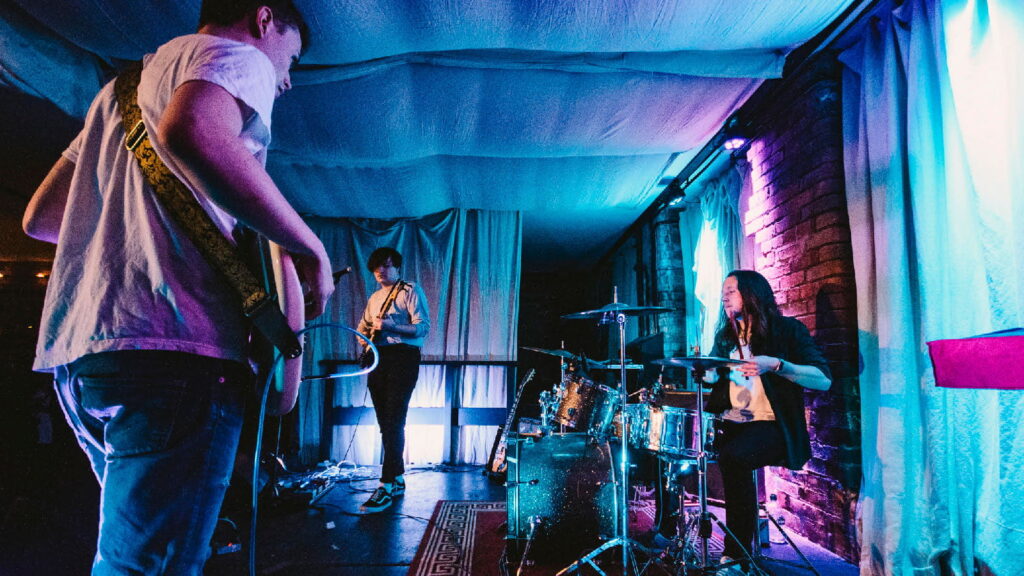
Let’s look at some of these complex issues, and then maybe we can face them head on.
For me, there are 4 key issues:
- Traffic
- Support
- Collaboration
- Power
Starting with number one, traffic. In a general sense, not enough people are going to gigs. It’s just a fact of life. Venues and promoters live and die by the number of people coming through the door. Promoters need to break even (as a minimum) to pay the venue and artists, and venues need people to go, spend money and bring their friends.
I know, financially everything’s a mess and has been for a while. A lot of people don’t have disposable income for shows, as they’re scrambling to keep the lights on themselves. That’s understandable. It’s a vicious circle and no one wins.
It’s also not just on the heads of gig goers. It’s a wider, joined up approach (see point 3), but on an individual level, going to gigs is the base currency that will help things improve the most on a short-term basis.
For those who are able, how many times have you said you’re going to a gig and then don’t? How many times have you cancelled on friends on the day of the show?
I’ve done it more times than I can remember. I have the means, but frequently fall short. It’s one of the main reasons that bands, promoters and venues struggle: apathy. I’d like to hope that the COVID pandemic has helped people understand the value of live music, and how much they’ve missed getting involved. However, this is not everything.
Use your enthusiasm. Amplifying shows via your networks, telling friends about the bands you’re going to see, buying tickets in advance of the show (normally cheaper), these are all positive and most of them are free.
If you’re financially able, pay it forward. This is an idea for promoters too (shout out La Violette Società for doing this so well already), obviously, but buying extra tickets and inviting a friend, or contacting the promoter or venue and saying you want to pass on one ticket to someone who may not be able to afford is great. It affords opportunities to those who may not have the means, fosters community and helps make promoters and venues so reliant on walk-ins.
For promoters, bands and venues, communication is key. Joined-up communications (point 3) is vital to ensure that shows get appropriate exposure. This goes for local press too. I’ve been to events talking about the live industry, and every single time the same thing comes up: a centralised gig calendar, updated every week. Someone needs to do it soon, or honestly, I’ll just do it.
But, more generally, it needs to be clear the responsibilities of all participants in the ecosystem of what needs to be done to actively promote a show. It’s the responsibility of all, not just one.
On to point 2, support. People in the industry are not getting enough support. I mentioned it in my previous article, but promoters and venues are fighting a losing battle before they even begin.
Venues are crippled by obscene rent with minimal financial assistance, either via the council or private entities that don’t care unless they get paid, and then running costs for staff, amenities, drinks, everything on top of that. Before a show, promoters ensure the venue is being paid for renting the space, agreeing fees with bands (hopefully all), and all other costs before the show even happens.
This leaves both clawing to break even before it even gets announced. A desperate struggle.
Outside of an individual level (point 1), the job falls squarely at the feet of the council and LCR to provide important assistance where it is urgently needed.

Here’s some ideas I highlighted in 2018:
- Follow the German model of reimbursing promoters who run a loss on a show, enabling promoters to do their job with less risk, and for longer. In 2018, the Live Music Innovation Fund on the Wirral did something similar in providing grants to help launch new arts-based entities. (Also, in April, Germany supported a ticket voucher scheme, essentially credit for live music supported at federal level.)
- Culture Pass: Follow the French government in providing culture “grants” of €500 to 18 to 21-year olds in select regions. The app uses geolocation to provide different cultural things the money can be spent on (theatre, shows, courses etc.) across select regions. A reduced version of this could see a new generation enamoured with culture again.
- Other ideas: upscaling mentoring schemes with city and private entity support, volunteer gig groups providing support to venues and promoters to reduce costs, education courses, collaboration with various music-based entities and more.
If this doesn’t come from the LCR or the city council, the private sector will have to fill the gap. If it’s from within the local industry then great, but this should have the backing of local government, it’s as simple as that.
Point 3: collaboration. I’ve mentioned this already a few times, but everything is just so fractured. I’m not talking about scenes, but the whole local music ecosystem. On the ground, joined up communications between bands, promoters, venues and press are key to ensuring show promotion through everyone’s social media feeds. A centralised gig calendar with weekly newsletters is also a much called-for option.
Ensuring that we don’t get bogged down in the cliques of industry friends and colleagues is something that needs to be addressed too. A clear, open approach will ensure voices are heard and amplified.
This goes across genre, background, everything. We’re already fighting against algorithms and social media, so why should we gatekeep too?
There’s no one-size fits all solution to a more joined-up approach, but the key is always dialogue and transparency. Setting expectations up front between all participants involved with shows, making points of contact clear and obvious, being available, understanding a bigger purpose and function outside of the individual entity.
It all adds up, but only with a culture shift at individual and business level. Without one, everyone suffers.
Finally, power. Point 4 has actually seen a positive step since 2018, with the formation of the Liverpool City Region Music Board, set up with the aim of, “cementing the city region’s position as one of the world’s music capitals and will work to ensure music businesses and communities have a stronger voice in local and regional decision-making”.
It has a wide range of influential voices across the local music industry, and it is good to see the Liverpool City Region engaging and putting recommendations in place following the numerous reports that came out about supporting the live music industry in 2018.
It has recently publicly supported Friends of Parr Street Studios, a group set up to push the city council to consider Parr Street as a community asset in the wake of the recent private planning permission and, subsequently, support a community-led alternative bid.
This is arguably a good step, and it’s good to see the Music Board begin to throw its weight around.
Moving forward, however, the key thing I want to see is transparency as it continues to become active over the next few years. It has its five priorities, and it is important not only that they are open about what is being done and how it is being done, but that we as a local industry are able to communicate openly and be made aware of where progress is being made.
If it doesn’t, then it may struggle to ensure that the local industry feels supported where it matters.
I have no doubt that this transparency will be a key part of their mandate. But it is our role to hold them to account and ensure this is the case.
It is also on them to ensure they don’t end up being used as a figurehead that is in place simply to provide the illusion of action in place of actual action. In local and central government, there are so many stories of this. Again, I have no doubt they’ll do just fine, but it’s too early to really say.
So, much like the last time I wrote an article on this, it’s important I make clear that there are so many positives in the city at the moment. We have so much talent, caring and attentive people across the local industry, so many people who genuinely care about what’s going on, and so many amazing entities and events that truly support everyone across the ecosystem.
But now, with the COVID-19 crisis having a truly transformative effect on everything, we cannot expect things to go back to normal after this. Now is the time for us to really get to the heart of what we can do to make things better for everyone. If not now, when?
My email (and DMs) are open to anyone who wants to discuss things, share their ideas, or are looking to collaborate. We are certainly open, so please get in touch.
Simon Christopher – Doing Life Records




